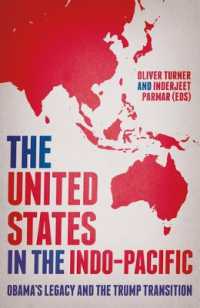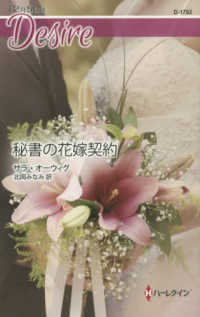Full Description
At several junctures in his career, Dante paused to consider what it meant to be a writer. The questions he posed were both simple and wide-ranging: How does language, in particular 'poetic language,' work? Can poetry be translated? What is the relationship between a text and its commentary? Who controls the meaning of a literary work? In Dante and Augustine, Simone Marchesi re-examines these questions in light of the influence that Augustine's reflections on similar issues exerted on Dante's sense of his task as a poet.
Examining Dante's life-long dialogue with Augustine from a new point of view, Marchesi goes beyond traditional inquiries to engage more technical questions relating to Dante's evolving ideas on how language, poetry, and interpretation should work. In this engaging literary analysis, Dante emerges as a versatile thinker, committed to a radical defence of poetry and yet always ready to rethink, revise, and rewrite his own positions on matters of linguistics, poetics, and hermeneutics.
Contents
Acknowledgements
Preface
Introduction
Linguistics
a. The nature of language and the common project of Convivio and De vulgari eloquentia: enucleare aliis conceptum
b. The quest for a perfect language: Latin as grammar
c. An alternative model: Augustine again
d. Concetto: the redefinition of conceptual speech in the Commedia
e. Concetto again: Dante's incarnational poetics in Paradiso
Poetics
a. The making of poetry: verba and sentential as discretive mixta
b. Meaning in poetry: the task of prose
c. Convenientia across secular and biblical writings
d. On translating meaning: biblical poetry and the sweetness of the Psalms
Hermeneutics
a. The burden of interpretation: authorial intention in Dante's "minor" works
b. Per te poeta fui, per te cristiano: texts and authors framing Statius' Christianity
c. Reading beyond the author: two stumbling blocks in Purgatorio XXII
d. Augustine's regula caritatis and the interpretation of the Commedia
e. Augustine's hermeneutics and the poetics of the Spirit
Conclusion
Works Cited








